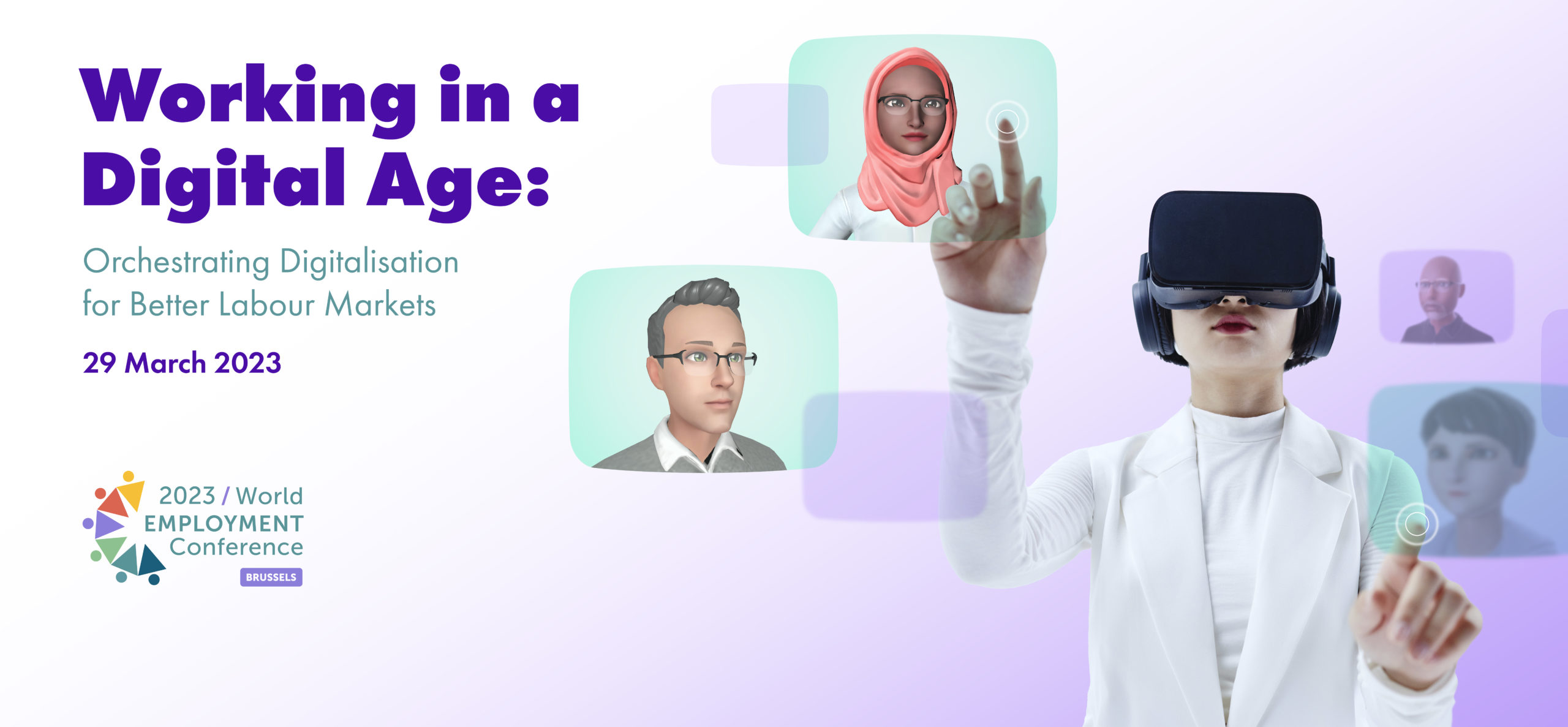Published on 9th March 2023
Artificial Intelligence (AI) brings many promises to facilitate the journey to the world of work for both workers and employers: ensuring a better and faster matching between supply and demand of work, grounding labour markets in skills, and contributing to more inclusive labour markets.
Responsible and ethical use of AI is however a prerequisite to ensure that it helps both companies and individuals unlock their potential. That’s why the World Employment Confederation members, as leaders of the HR services industry, agreed a set of principles to guide the deployment of AI in the recruitment and employment industry.
At the core of the principles lies the need to keep the human element centric. AI systems used in the recruitment and employment industry should be beneficial for individuals and society as a whole. They should be designed to augment human capabilities, with clear processes in place to ensure that they remain under human direction and control at all times. Transparency, explainability and traceability should be guaranteed to understand how these systems arrive at their decisions.
Fairness, non-discrimination, diversity, inclusiveness and privacy – principles that WEC members also abide to in their overall practice of HR services – are also principles to be followed to guarantee ethical use of AI in recruitment and employment. While WEC principles state that those deploying AI systems remain at all times responsible and accountable for their use, the industry also believes that clear, transparent, and accountable governance frameworks must be in place. WEC is already involved with relevant stakeholders, such as governments, civil society, and academia, in the decision-making process for such frameworks at both global and European level.
Given the evolving nature of Artificial Intelligence, WEC’s code is a living set of principles that will be adapted over time. As for the principles enshrined in WEC’s overall Code of Conduct, WEC members have a duty to apply those ethical principles in their use of AI.
AI’s potential for better labour markets
AI can ensure a better and faster matching between supply and demand of work by on the one hand, helping companies assess the skills of their existing workforce, understand their in-house talent and how to develop it more effectively, and on the other hand, helping workers understand their own skills profile and develop it in the best way to achieve their career goals.
AI can also contribute to increase diversity, equity, and inclusion. It can help to mitigate the likelihood for unconscious bias in recruitment processes and improve the candidate experience.
Pioneering at the forefront of digital evolution is no easy feat. Labour market stakeholders are facing major challenges when implementing new technology solutions such as AI. The challenges are many, but so are the opportunities. How can we find the right balance so that digitalisation benefits all?
The World Employment Conference 2023 addressed this question during the session “Good or Bad Tech: How to Build a Brave New World of Digital Work?” in a session moderated by Anisha Nadkarni, Data Ethics Officer at Randstad. She was joined by Dror Gurevich, CEO of Velocity Career Labs, a project pioneering the use of digital wallets for career credentials, and Burkard Göpfert, Partner at the legal firm KLIEMT.Arbeitsrecht, who brought insights on the legal implications of these new technological developments.
Check out some take-aways from this session, and the entire conference, in our blog series!
